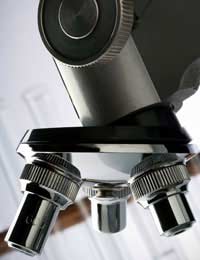PCR Analysis - Polymerase Chain Reaction

There are numerous techniques available for DNA analysis, each with different merits and challenges. While DNA discovery in itself has been an exciting and significant occurrence during the twentieth century, our development of the many techniques to analyse DNA have been even more exciting. These techniques and their applications have had a major impact on fields such as forensic science and medicine.
What is PCR Analysis?
PCR analysis stands for 'polymerase chain reaction.' It is a technique that allows technicians to create millions of precise DNA replications from a single sample of DNA. In fact, DNA amplification alongside PCR can let forensic scientists perform DNA analysis on samples that are as tiny as only a couple of skin cells. In contrast to some other DNA analysis techniques, PCR analysis has the advantage of analysing extremely tiny sample sizes, even if they are degraded although they must not be contaminated with DNA from other sources during the collection, storage and transport of the sample.Performing PCR Analysis
The name of the technique comes from one of the main parts of the reaction - DNA polymerase, which works to copy the DNA via enzymes. As the PCR is performed, the DNA that is generated is essentially a template for copying. Next, a chain reaction basically occurs whereby the DNA template is amplified. PCR analysis allows for millions of copies of the DNA sample and also benefits from the ability to be modified to allow for many kinds of genetic manipulations.The majority of PCR uses are done with DNA polymerase, which builds a new strand of DNA by using nucleotides. Also, the DNA polymerase that is used is heat-stable. A nucleotide consists of a sugar, phosphate group and a nitrogenous base. DNA polymerase uses DNA as the template and DNA primers to start the building of a new strand of DNA. Most of the PCR techniques use something called thermal cycling. This means that the sample is heated and cooled, which is important to separate the strands. If you are familiar with DNA structure, you will recall that DNA has a double helix. Therefore, the two strands require separation.
Using and Applying PCR Analysis
PCR analysis was developed in the early 1980s and has become a very useful and widely supported technique for analysing DNA. It has numerous applications such as paternity testing and criminal investigations. It can also be used to detect cancers such as leukaemia and lymphomas. In fact, PCR is particularly sensitive to detection of malignant cells - far more than other techniques currently used. Also beneficial is that PCR analysis has applications for the detection of infections involving bacteria or viruses. Mutations can also be detected via this method of DNA analysis, which means that PCR analysis can detect abnormalities, thus being important for genetic disease testing.PCR analysis will probably continue to be a valuable tool for DNA analysis, although new research should refine the technique further as well as provide new alternatives to the method. For now, however, PCR analysis is an effective technique with applications in medicine, criminal investigations and paternity.
Business Energy With a Difference
If you are looking for business energy or need advanced solutions like remote energy monitoring, new supplies, downgrading or upgrading capacity, have a no obligation chat with Purely Energy.
To find our more get in touch here. or call 0161 521 3400.







